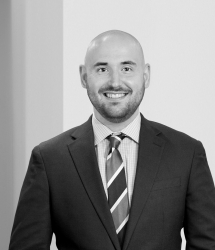Client Alert: U.S. Supreme Court “Clarifies” Religious Accommodation Standard After Nearly Half a Century
On June 29, 2023, the United States Supreme Court issued a significant decision in Groff v. DeJoy, No. 22-174 (June 29, 2023), in which it “clarified” the religious accommodation standard under Title VII of the Civil Rights Act. Uprooting nearly half a century of precedent, the Court articulated that the standard for an employer’s showing of “undue hardship” is met only “when a burden [posed by an accommodation] is substantial in the overall context of an employer’s business.” (Emphasis added). Until now, courts have widely regarded “undue hardship” to mean only “more than a de minimis cost,” which means this standard was much easier for employers to meet before Groff.
By way of background, Title VII prohibits discrimination on the basis of religion, including all aspects of belief, observance, and practice. Further, Title VII requires employers to accommodate an employee’s religious practices, unless doing so would impose an “undue hardship on the conduct of the employer’s business.”
The “more than a de minimis cost” phrase was first used in the Court’s decision in TWA v. Hardison, 432 U.S. 63 (1977). From there, lower courts latched onto the phrase and employers adopted it as the standard to determine whether a requested religious accommodation posed an undue hardship. In practice, if an employer had evidence that a requested accommodation would cause it to bear “more than a de minimis cost,” then the employer was within its rights to deny the request.
In Groff, the Court considered the question of whether the de minimis standard was the correct reading of the law and how “undue hardship” should be defined in determining religious accommodation claims under Title VII. For context, the plaintiff in Groff was an Evangelical Christian postal carrier who held a religious belief that work should not be performed on Sundays and that Sundays should be reserved for rest and worship. For the first several years of his employment with the United States Postal Service (USPS), the plaintiff’s job did not require him to work on Sundays. Later, when USPS started to make Sunday deliveries, it made multiple attempts to accommodate the plaintiff. Ultimately, though, due to staffing and morale issues imposed by the plaintiff’s accommodation, he was required to work Sunday shifts. Because of this, the plaintiff sued USPS, alleging that it could have accommodated his Sunday Sabbath without undue hardship. Applying the de minimis cost standard stemming from Hardison, USPS was awarded summary judgment by the District Court (which means the plaintiff’s case was dismissed on legal grounds), and the ruling was subsequently upheld by the Third Circuit Court of Appeals. Groff then petitioned the U.S. Supreme Court to hear his case.
In a unanimous opinion, the Supreme Court found that Title VII warranted a standard higher than de minimis for undue hardship. Indeed, in “clarifying” the Hardison case, the court noted that its opinion discussed “substantial costs or expenditures” multiple times in the context of undue hardship, and for decades courts actually had misidentified the “de minimums cost” language as the appropriate standard. As such, the Court remanded Groff to the Court of Appeals for further proceedings consistent with this opinion.
Employer Takeaway
This decision has significant implications for employers. Namely, it imposes a new, higher standard for employers when assessing whether an employee’s request for religious accommodation would pose an undue hardship on their business. Specifically, employers should now deny requests only if there is evidence that they pose a “substantial” increased cost rather than just a “more than de minimis” cost.
Employers should also be prepared for an influx of new requests for accommodation that could follow this decision. As such, employers may wish to reevaluate their accommodations policies and are advised to seek counsel in making any changes.
Finally, employers should be aware that the undue hardship test for accommodations of disabilities under the Americans with Disabilities Act still requires a showing of “significant difficulty or expense,” and the Court noted that this standard remains unchanged by its opinion in Groff.
Employers should contact Bowditch & Dewey’s Employment & Labor practice group with any questions about the Court’s decision and how it may impact their business.
Categorized: Client Alerts, Publications
Tagged In: Title VII, religious discrimination, de minimis standard, religious accommodation claims









